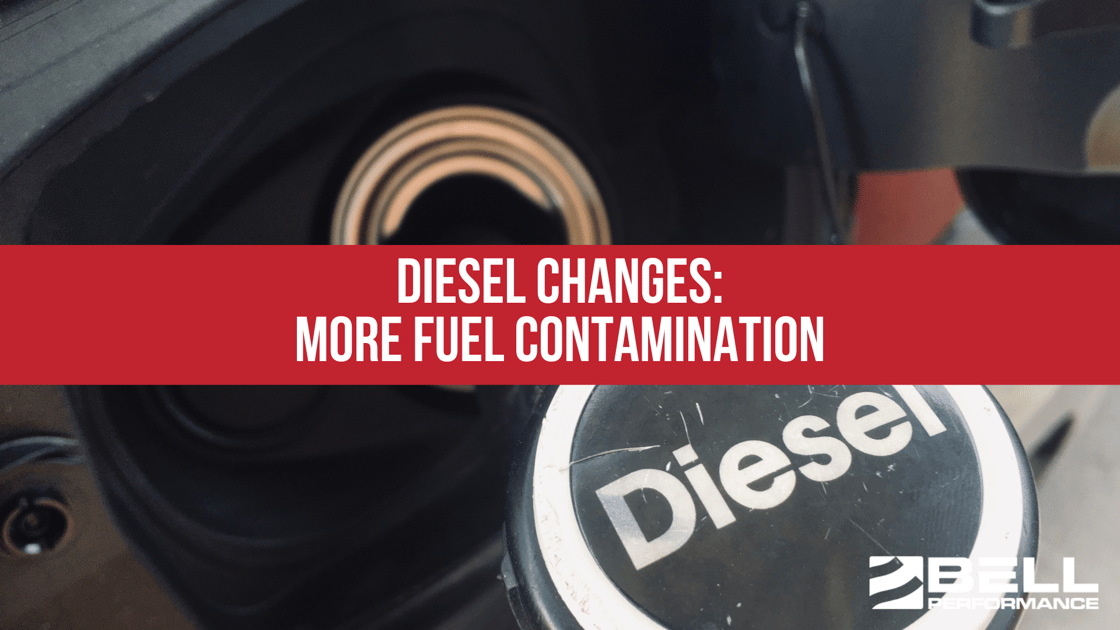Beyond Compliance: The Real-World Best Practices for Fuel Storage and Maintenance
In the course of running a business or managing facilities, there’s often a tension between meeting regulatory requirements and pursuing the extra...

It's not just ethanol in gas that's been changing the fuel landscape and causing unexpected problems. Now that ultra-low sulfur diesel fuel has been the staple of the land for a few years, diesel users are seeing diesel fuel contamination issues in their fuel, too.
Like it or not, diesel fuel begins to deteriorate as soon as it is produced. This deterioration does not present a major problem if the fuel is consumed relatively quickly. However, diesel fuel may be stored for months or even years in places like standby systems. The ensuing deterioration of the fuel not only affects pumpability and combustibility but most likely may cause engine damage.
Diesel fuel contamination is a big issue. Estimates are that eight out of every ten diesel engine failures have been directly related to contaminated fuel. Fuel contaminants in the storage tanks can quickly clog filters, resulting in engine shutdown, fuel pump wear, and diesel engine damage. These situations are both time-consuming and costly.
Since about 2007, all diesel fuel has been ultra-low sulfur diesel, reducing the sulfur level in the fuel from 500 parts per million to only about 15. This makes the diesel fuel better for the environment as you have fewer sulfur gases produced (think less smog and acid rain). However, the negative consequences of this have shown up in fuel lubricity problems (affecting the lubrication of injectors and fuel pumps) and, less expectedly, in more instances of infected storage tanks.
The sulfur in the fuel is used to act as a natural disinfectant, in that it's toxic to bacteria and fungi and makes it harder for them to grow in the fuel. Since the removal of most of this sulfur, farmers, fuel handlers and other professionals who use or handle large amounts of diesel fuel daily have seen their problems with infected tanks go through the roof. They might have already good maintenance protocols in place to keep water condensation under control, so they start wondering why they still have bacteria growing in the diesel fuel and causing problems. It's because the sulfur is no longer there to keep the microbes in check.
You can buy the most expensive, state-of-the-art equipment, but without clean, good-grade fuel it cannot do its job. Storing diesel fuel in tanks for later use or fuel in tanks of vehicles not used immediately is causing trouble, due to the microbes (bacteria) and fungi that grow and thrive on water buildup in the tanks. How quickly the “bugs” turn fresh fuel into sludge-and-slime-filled fuel depends on factors such as climate, weather, tank conditions, or tank design.
What can you expect if this diesel problem develops? Clogged fuel lines, filters, and damaged engines. In the tanks themselves, as the bacteria and fungi develop, the slime they create sticks to the walls of the tanks and begins a corrosion process that can also lead to tank damage and possible fuel leakage into the ground.
Water buildup doesn’t just contribute to microbial contamination. While ethanol gasoline acts as a fuel only, diesel fuel must also function to cool and lubricate injection system parts. These parts are engineered to very close tolerances up to 0.0002 of an inch and any contamination means rapid wear or seizure of components. Water not only displaces the diesel fuel; it acts as a cutting agent, scoring these parts. In either case, costly damages are the inevitable result.
Water that makes it to the brink of entry into the combustion chamber results in even more serious damage. When it comes in contact with the heat of the combustion chamber and the injector tip (which can be more than 2,000 degrees F), it immediately turns to steam and often literally explodes the tip of the injector resulting in some very expensive repairs.
You might be thinking so what? You don't even drive a diesel vehicle. What's the big deal? Well, consider a couple of facts. Diesel fuel is the fuel that "drives" our economy through the fueling of much of our on-road transportation and our city/county government service vehicles. Many of these governments and entities are cash-strapped. They've had diesel fuel sitting around for months or years, waiting to be used in an emergency. So what happens when a hurricane hits this summer and they go to fire up generators to provide essential power? Or to send out diesel trucks to clean up downed trees? When they need to use the fuel and the fuel is bad because of fungus infestation that clogs filters and makes engines not start, that becomes the public's problem, not just their problem.
For larger volume fuel users, these problems can be avoided if you follow some simple preventive maintenance procedures, such as limiting water in storage tanks, regular treatments with a quality biocide like Bell Performance Bellicide to kill the microorganisms, and DFS Plus to remove water. Continual use of a good multi-function diesel fuel treatment (like Bell Performance Dee-Zol) should be able to control and limit the amount of water that ends up in diesel fuel. Any diesel fuel additive you choose should also improve combustion, slow down the deterioration of the fuel, and lubricate internal fuel system components to keep them in good working order.
In the course of running a business or managing facilities, there’s often a tension between meeting regulatory requirements and pursuing the extra...
When fuel prices trend upward during a recessionary period, it is vital for your budget to optimize your big rig diesel performance. You may already...
When your generator won’t start or stops running unexpectedly, the natural first step is to call a technician. Unfortunately, one of the most common...